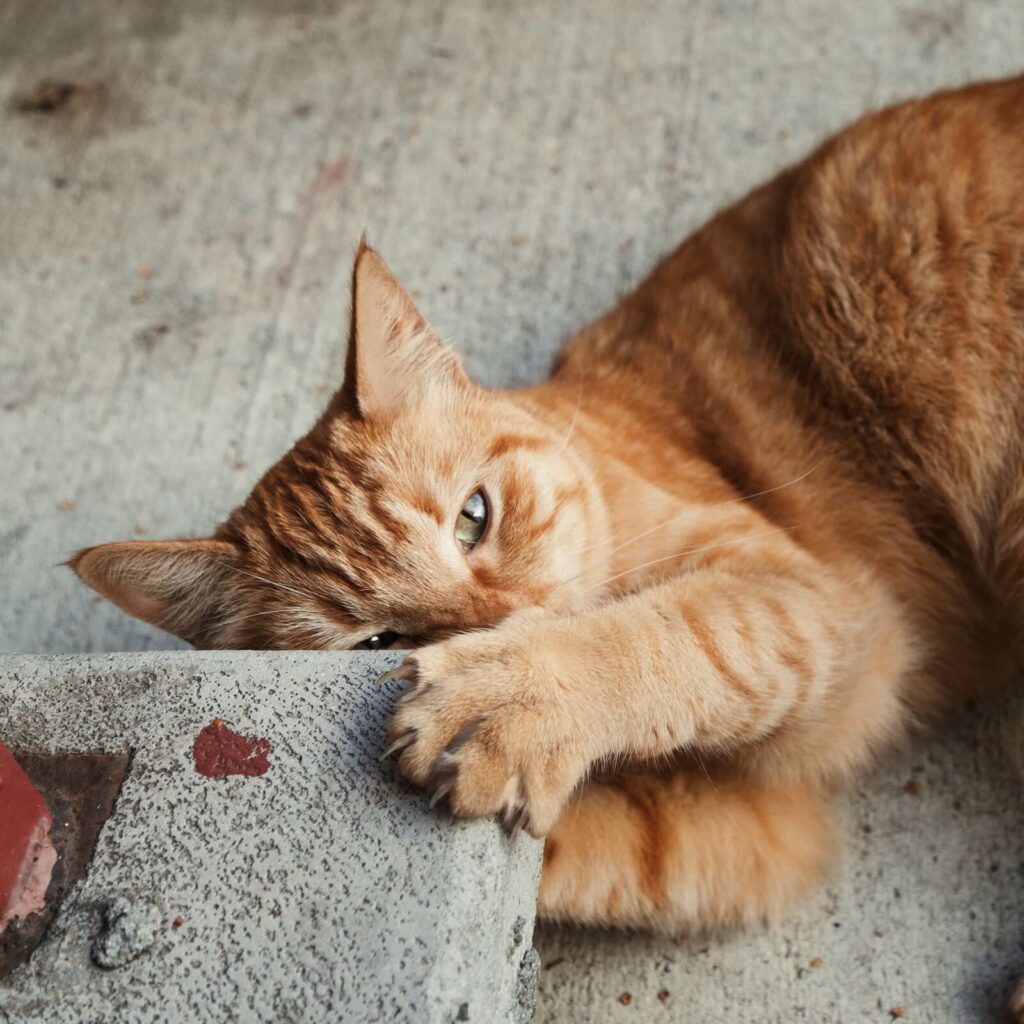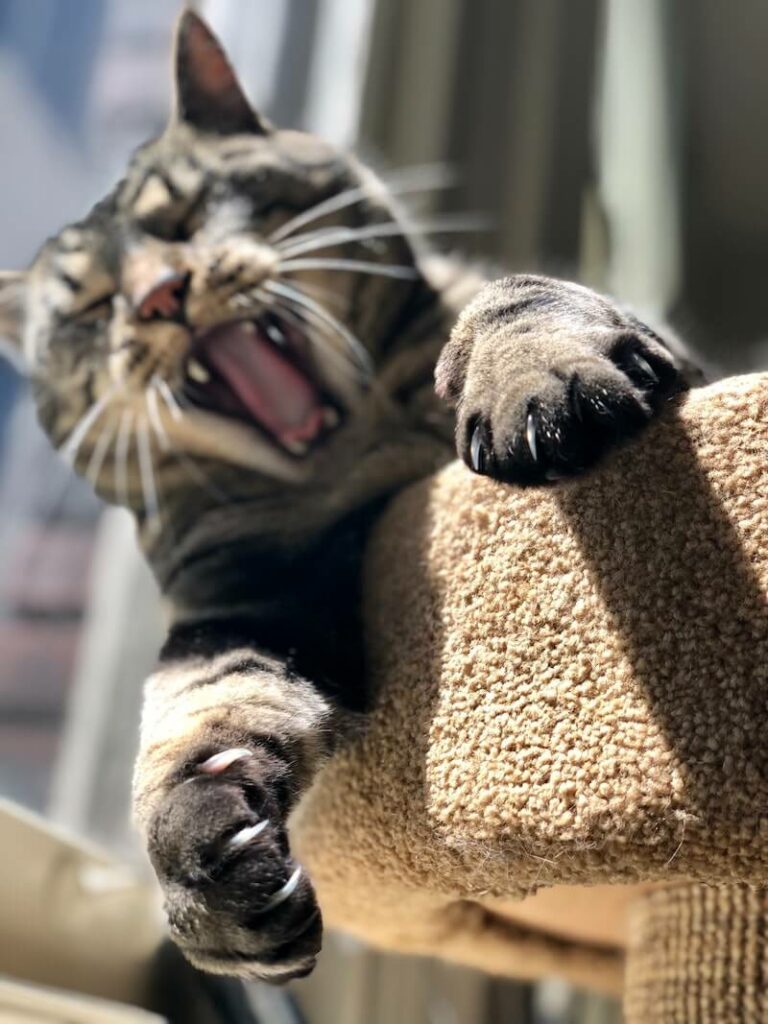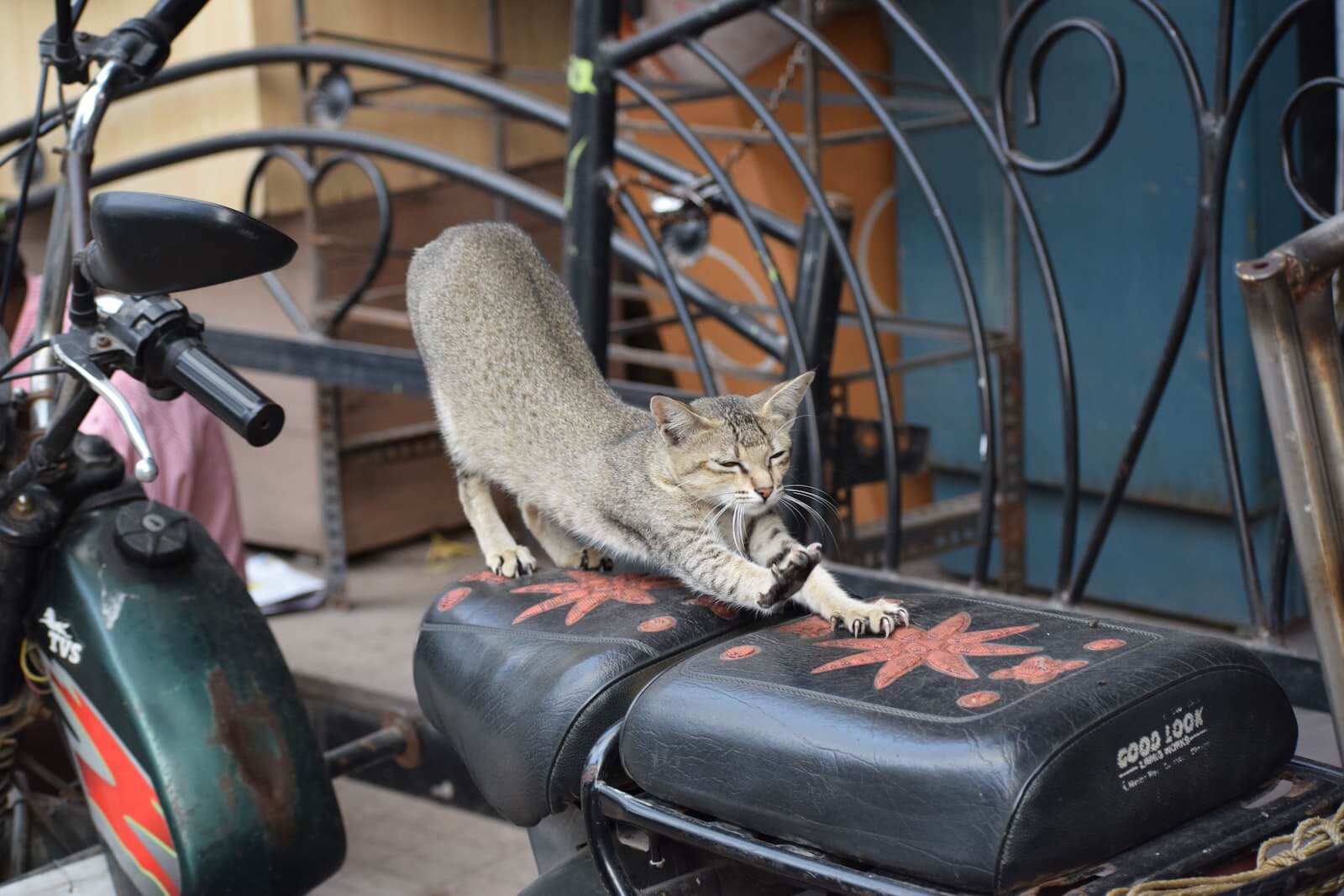Cats have many attitudes and habits that make us doubt if everything is fine inside that furry little head. A cat meowing so loud that you can hear it from several feet away, or one that rolls around the house to mark it with its scent, or what about those who bite their nails? Especially the latter is an activity that at least I was looking to eliminate in my cat Louie. I thought, why is my cat biting his nails? Didn’t his cat mom teach him that it is a bad habit?
I was shocked to learn why a cat bites or chews its nails, and although for us, it is unhygienic and harmful to several parts of our body, the story is different for cats. Are you curious yet? Join me and read the following article, where I will tell you what exciting info I found in my search.
Why do cats bite their nails? Part of the grooming and maintenance process
Anyone who lives with a cat already knows that these little guys are incredibly clean, most of them to the point of wanting to clean us too!
It’s no wonder cats give themselves a long, detailed bath every day, even several times during the day. On average, cats spend 30-50% of their active time on grooming activities, so they are very committed.

Cats use rough tongues to brush and clean their fur as part of their grooming routine. They take an occasional nibble to pull out some stuck-on litter or a dry tuft of hair, and, if necessary, they also bite their nails to clean them of any dirt that has crept in underneath. And if you think about it, it makes perfect sense. The paws and the claws are the parts that get the dirtiest, as cats are always barefoot.
Another step in this premium maintenance is to trim the nails because they are too long or because some parts are broken or chipped.
Usually, you won’t see your cat doing this whole process, as they prefer to hide and run away when they do their cleaning ritual, but if you see your cat biting his nails naturally and calmly, don’t worry. He is simply making sure they are more than clean.
Cat biting nails? A consequence of behavioral problems
Cats are susceptible animals, which makes them very sensitive to stress and anxiety. Many situations seem normal and safe for us, but for cats, they represent a danger. It may often be because they don’t understand what is going on or because their senses are more developed than humans, making external stimuli more intense. For example, it could be that the smell of your new special dish is too powerful to the point of causing them discomfort.
When these little ones get very stressed, they have behavioral changes that may indicate that the pet is not feeling well. Cats tend to feel insecure when there is a move or a significant difference at home, whether it’s a new family member, a big party, or strange noises. Your cat cannot do anything to fix the problem. Therefore, your cat can become stressed and need to find a way to relieve that tension.

One way to relieve stress is through long grooming sessions, which, although a daily activity, done in excess can be detrimental. Excessive grooming can lead to bald patches, cause wounds and skin infections, and cause nail and paw injuries.
Observing our pet’s routine is important, as lack of activity and loneliness cause anxiety among felines. If you notice that your cat bites its nails too much, it may indicate that your cat needs more walks or more toys to pass the time without getting bored, or maybe it needs to have a companion or spend more quality time with his human family.
Why is my cat biting his nails? Indicator of possible disease
If your cat bites his nails more than usual, he may have one of the following medical conditions.
1. Thick and hard nails
Although it is normal for older cats to have nails like this, it can also indicate a health problem. If you see your cat biting its nails very hard, this may be the case, or it may also suggest that the cat’s nails have grown too long and are hurting its paws.
2. Ringworm
Be careful with this one because it spreads rapidly, from cats to humans and vice versa. It is a fungus that mainly affects the skin and coat, and in severe cases, also the nails. In the nails, the damage can be easily noticed, as they become hard, pitted, develop a scaly base, and can also become deformed. Treatment is simple and does not cause significant problems.

3. Pemphigus (several types)
This is the most common autoimmune disease among cats. Although medicine can suppress the symptoms, it is rarely completely cured. If you notice scabs and ulcers in your cat, rule out this diagnosis as soon as possible, it is crucial to take your cat to the vet because if left untreated, it can be life-threatening.
4. Bacterial infections
Although nail infections are usually easy to treat, they are very annoying. So if your cat bites his nails a lot and you notice that he has inflammation or redness in that area, help him with a quick visit to the vet.
Cat biting nails? The bottom line
Who would have thought that such a simple action could mean so much? Now you are more prepared to take even better care of your cat and help him if he shows any symptoms that the vet should attend to at any time.
Remember that it is always better to be cautious to avoid future problems, so check your cat’s paws frequently to detect any changes in time. Have you ever seen your cat biting its nails? Tell us in the comments!
